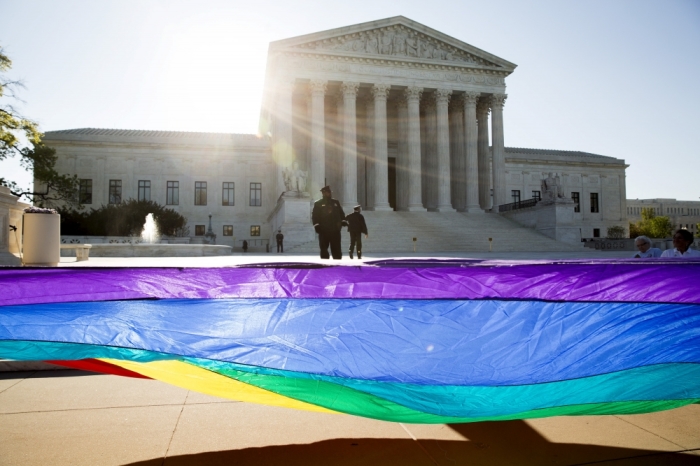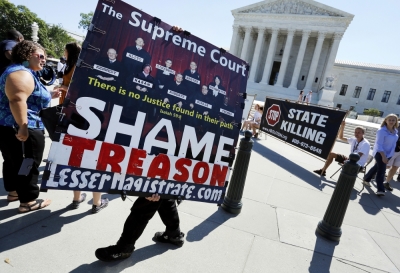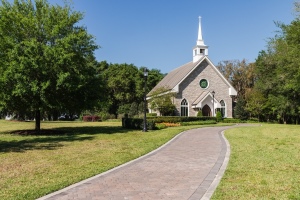Supreme Court's Gay Marriage Ruling Must Be Rejected by States, 64 Legal Experts Say

A group of 64 legal experts and scholars have signed a statement calling on Americans to oppose the U.S. Supreme Court's recent decision legalizing gay marriage nationwide.
The Washington, DC-based American Principles Project posted the legal experts' statement Thursday on their website in which they denounced the 5-4 ruling in Obergefell v. Hodges.
"The Court's majority opinion eschewed reliance on the text, logic, structure, or original understanding of the Constitution, as well as the Court's own interpretative doctrines and precedents, and supplied no compelling reasoning to show why it is unjustified for the laws of the states to sustain marriage as it has been understood for millennia as the union of husband and wife," declared the statement.
"The opinion for the Court substituted for traditional — and sound — methods of constitutional interpretation a new and ill-defined jurisprudence of identity — one that abused the moral concept of human dignity. The four dissenting justices are right to reject the majority opinion in unsparing terms."

Quoting James Madison and Abraham Lincoln regarding their views on the Supreme Court, the legal experts argued that "all federal and state officeholders" should "refuse to accept Obergefell as binding precedent for all but the specific plaintiffs in that case."
"To recognize the authority of states to define marriage, and the right of federal and state officeholders to act in accordance with those definitions," continued the statement.
"[All federal and state officeholders should] open forthwith a broad and honest conversation on the means by which Americans may constitutionally resist and overturn the judicial usurpations evident in Obergefell."
Signatories included Robert P. George, McCormick Professor of Jurisprudence at Princeton University and founder of the American Principles Project; Ralph A. Rossum, Salvatori Professor of American Constitutionalism at Claremont McKenna College; John Agresto, former president of St. John's College, Santa Fe, and the American University of Iraq; and Robert F. Sasseen, president and professor of Politics Emeritus at the University of Dallas.
On June 26, the highest court in the land ruled 5-4 that state level bans on gay marriage violated were unconstitutional, affirming several lower court decisions.
Justice Anthony Kennedy wrote the majority opinion, arguing that state-level bans violated the Fourteenth Amendment, as well as the "dignity" of same-sex couples."
"The limitation of marriage to opposite-sex couples may long have seemed natural and just, but its inconsistency with the central meaning of the fundamental right to marry is now manifest," wrote Kennedy.
"With that knowledge must come the recognition that laws excluding same-sex couples from
the marriage right impose stigma and injury of the kind prohibited by our basic charter."
The signatories of the American Principles Project statement are not the only legal experts who have expressed concern about the merits of the decision.
Jonathan Turley, Shapiro chair of public interest law at The George Washington University, explained in a July column for The Washington Post that while he supported the decision he took issue with Kennedy's reasoning.
"Dignity is a rather elusive and malleable concept compared with more concrete qualities such as race and sex. Which relationships are sufficiently dignified to warrant protection?," wrote Turley.
"Could employees challenge workplace dress codes as intruding upon their right to 'define and express their identity'? Could those subject to college admissions preferences raise claims that race or gender classifications deny their individual effort to 'define and express their identity'?"




























